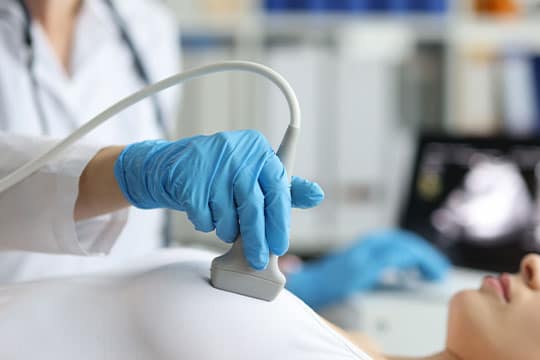Home > Disease and Treatments > Why is an Angiogram recommended
Why is an Angiogram recommended
What is an Angiogram?
An angiogram is a diagnostic imaging technique used to examine the blood vessels, particularly those in the heart and brain. It involves the injection of a contrast dye into the bloodstream, which highlights the blood vessels on X-ray images. Angiograms can help identify blockages, narrowings, aneurysms, and other abnormalities in the blood vessels.
Types of Angiograms
- Coronary Angiogram: Focuses on arteries near the heart.
- Pulmonary Angiogram: Evaluates vessels near the lungs.
- Cerebral Angiogram: Visualizes blood vessels near the brain.
- Carotid Angiogram: Studies vessels in the head and neck.
- Aortogram: Examines the aorta.
- Peripheral Angiogram: Assesses vessels in the arms and legs.
The procedure of an Angiogram
During an angiogram, a catheter is inserted into a blood vessel and guided to the area of interest. Contrast dye is then injected to enhance visibility on X-ray images. A cardiologist analyzes these images to identify abnormalities and plan treatment.
Computed Tomography Angiogram (CTA) and Magnetic Resonance Angiogram (MRA) offer less invasive alternatives to traditional angiograms. Your cardiologist will recommend the most suitable option based on your medical history and specific needs.
Reasons for Angiograms
Identifying vascular abnormalities such as tears, weaknesses, or narrowing
Angiograms play a crucial role in identifying any abnormalities in the blood vessels. These abnormalities can include tears, known as dissections, and lead to blood leakage into the vessel wall. Weaknesses in the vessel walls, such as aneurysms, can also be detected through angiograms. Additionally, angiograms can pinpoint areas of narrowing in the blood vessels, which may restrict blood flow and potentially lead to complications if left untreated.
Assessing changes in blood vessels due to injury or disease
Another important function of angiograms is to assess changes in blood vessels caused by injury or disease. For example, angiograms can reveal the extent of damage to the blood vessels resulting from trauma or chronic conditions such as diabetes or hypertension. By evaluating these changes, healthcare providers can better understand the impact on blood flow and formulate appropriate treatment plans.
Mapping blood flow patterns to aid in treatment planning
Angiograms provide detailed information about blood flow patterns within the body, which is essential for treatment planning. By mapping out these patterns, healthcare providers can identify areas of restricted blood flow or abnormal circulation. This information is valuable in cases where surgery or other interventions are needed to restore proper blood flow or address vascular abnormalities.
Evaluating conditions like intermittent claudication and atherosclerosis
Conditions affecting blood vessels, such as intermittent claudication and atherosclerosis, can significantly impact an individual's health and quality of life. Angiograms allow healthcare providers to evaluate the severity and extent of these conditions by visualizing the affected blood vessels. This information guides treatment decisions and helps determine the most appropriate course of action for managing the condition.
Locating the source of internal bleeding
Angiograms are invaluable in locating the source of internal bleeding, which may be difficult to identify through other diagnostic methods. By visualizing the blood vessels in real-time, angiograms enable healthcare providers to pinpoint the exact location of the bleeding and determine the underlying cause. This information is essential for initiating prompt and targeted interventions to stop the bleeding and prevent further complications.
Preparing for kidney transplant surgery by assessing renal arteries
Before kidney transplant surgery, it is essential to assess the condition of the renal arteries, which supply blood to the kidneys. Angiograms allow healthcare providers to evaluate the size, location, and patency of these arteries, ensuring that they are suitable for transplant. This preoperative assessment helps minimize the risk of complications during the transplant procedure and ensures the best possible outcome for the patient.
Disclaimer
The above blog is for information purposes only. We recommend contacting experts for diagnosis and treatment.
Angiograms are invaluable tools in diagnosing and treating various medical conditions related to vascular health. If you have any concerns about undergoing an angiogram, consult with heart specialists at Royal Care Hospitals for personalized guidance and recommendations.
Appointments must be made 24 hours in advance.
Book an AppointmentRECENT BLOGS

While breast cancer affects millions of women worldwide, not all breast cancer is the same...
Read More
Lung cancer remains one of the most challenging health concerns globally but the good news...
Read More
The word "overdose" implies there's a known, safe dosage for a drug. It's not just about t...
Read More
